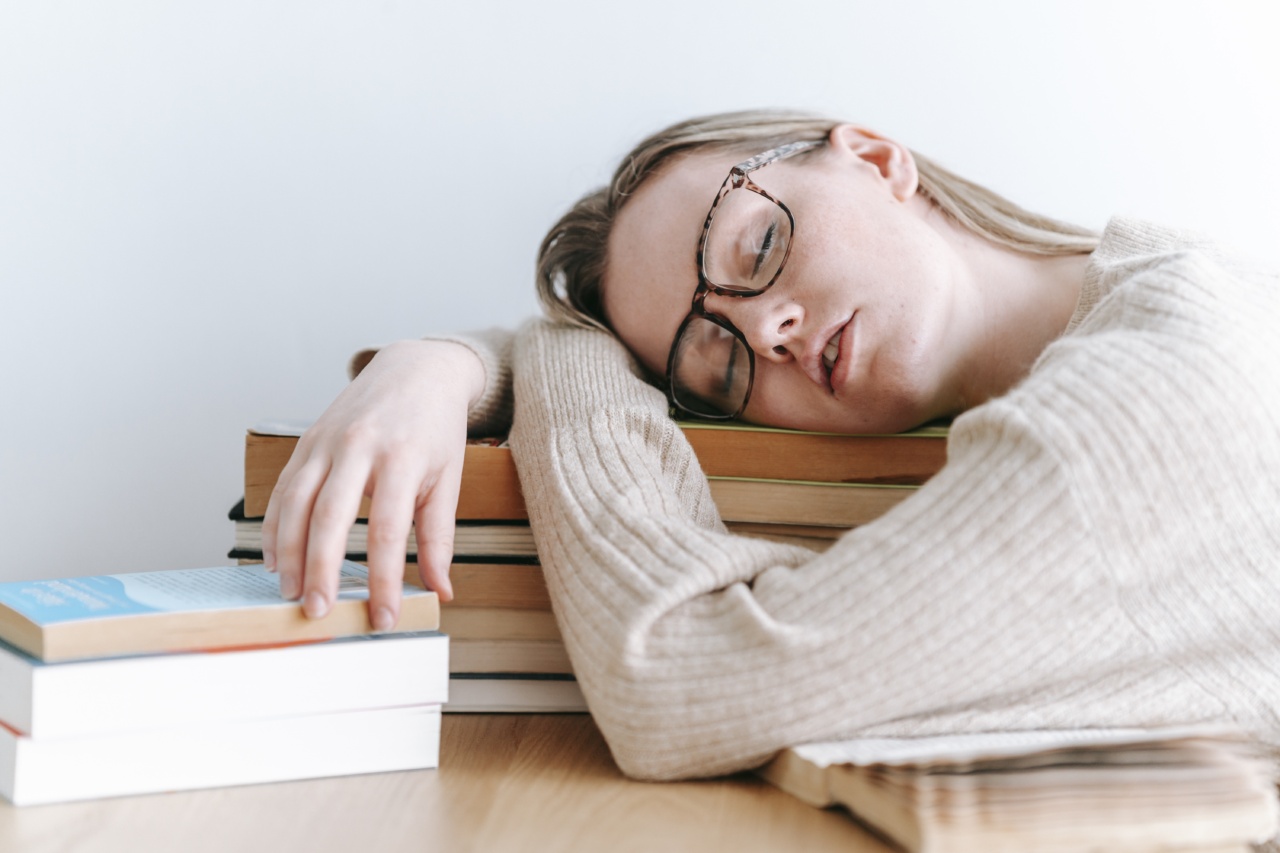Menopause is a natural stage in a woman’s life when her menstrual cycle stops, marking the end of her reproductive years.
While menopause brings about various physical and emotional changes, one common symptom experienced by many women is sleep problems. Hormonal fluctuations and other factors during menopause can disrupt a woman’s sleep patterns, leading to difficulties falling asleep and staying asleep throughout the night.
In this article, we will explore some effective strategies to cope with sleep problems during menopause.
Understanding the Sleep Problems during Menopause
During menopause, the levels of estrogen and progesterone, the hormones responsible for regulating sleep, fluctuate significantly. These hormonal changes can make it challenging for women to fall asleep, stay asleep, or achieve deep, restorative sleep.
Some of the common sleep problems experienced during menopause include:.
1. Insomnia
Insomnia refers to difficulties falling asleep, staying asleep, or both.
Menopausal women often find themselves tossing and turning in bed, unable to find a comfortable position, or their mind racing with thoughts, making it hard to switch off and drift into sleep.
2. Night Sweats and Hot Flashes
Night sweats and hot flashes are common symptoms during menopause. These sudden feelings of intense heat can lead to excessive sweating, making it uncomfortable to sleep.
Night sweats can disrupt sleep, leading to frequent awakenings and difficulty returning to sleep.
3. Sleep Apnea
Sleep apnea is a sleep disorder characterized by episodes of interrupted breathing during sleep. While sleep apnea can affect people of all ages and genders, its prevalence increases during menopause.
The decrease in estrogen levels can contribute to the development or worsening of sleep apnea symptoms in women.
4. Restless Leg Syndrome (RLS)
Restless leg syndrome causes the uncontrollable urge to move the legs, often accompanied by uncomfortable sensations like itching, tingling, or a “creepy-crawly” sensation.
RLS can make it difficult to relax and fall asleep, leading to sleep deprivation and daytime fatigue.
Strategies for Coping with Sleep Problems during Menopause:
1. Maintain a Consistent Sleep Schedule
Establishing a regular sleep routine can help regulate your body’s internal clock and promote better sleep. Try to go to bed and wake up at the same time every day, even on weekends.
Consistency in your sleep schedule can improve the quality of your sleep and make it easier to fall asleep and wake up refreshed.
2. Create a Relaxing Bedtime Routine
Develop a relaxing bedtime routine that helps you unwind before sleep. This could involve activities such as taking a warm bath, reading a book, practicing deep breathing exercises, or listening to calming music.
A consistent pre-sleep routine signals your body and mind that it’s time to wind down and prepare for sleep.
3. Ensure a Comfortable Sleep Environment
Make your sleep environment as comfortable and conducive to sleep as possible. Keep your bedroom cool, dark, and quiet. Use blackout curtains, earplugs, or a white noise machine to block out any external disruptions.
Invest in a comfortable mattress, pillows, and breathable bedding materials to support maximized comfort during sleep.
4. Manage Stress and Anxiety
Stress and anxiety can significantly impact sleep quality. Find healthy ways to manage stress, such as practicing relaxation techniques, mindfulness meditation, or engaging in regular physical exercise.
Consider seeking professional help if stress or anxiety become overwhelming and start to interfere with your daily life and sleep patterns.
5. Avoid Stimulants and Heavy Meals before Bedtime
Avoid consuming stimulants close to bedtime, as they can interfere with your ability to fall asleep. Limit your intake of caffeine, nicotine, and alcohol, especially in the evening.
Additionally, avoid heavy meals or spicy foods before bedtime, as they can cause indigestion or discomfort, making it harder to sleep peacefully.
6. Stay Active and Exercise Regularly
Engaging in regular physical activity can help regulate hormones, reduce stress, and promote better sleep. Aim for at least 30 minutes of moderate-intensity exercise most days of the week.
However, avoid vigorous exercise too close to bedtime, as it may energize you and make it challenging to fall asleep.
7. Consider Natural Remedies and Supplements
Several natural remedies and supplements may help address sleep problems during menopause. Some herbs like valerian root and chamomile have calming properties and can promote better sleep.
Additionally, certain dietary supplements like melatonin or magnesium may alleviate sleep difficulties. Consult with your doctor or a healthcare professional before trying any new supplements.
8. Seek Medical Advice
If sleep problems persist and significantly affect your quality of life, it is essential to consult with a healthcare professional.
They can evaluate your symptoms, rule out any underlying medical conditions, and provide appropriate treatment options tailored to your specific needs.
Conclusion
Sleep problems during menopause can be disruptive and contribute to daytime fatigue, mood swings, and a decreased overall sense of well-being.
However, with some lifestyle adjustments and self-care strategies, it is possible to improve sleep quality and minimize the impact of menopause-related sleep difficulties. By maintaining a consistent sleep schedule, creating a relaxing bedtime routine, managing stress levels, and seeking professional advice when needed, women can effectively cope with sleep problems during menopause and enjoy restful nights once again.






























